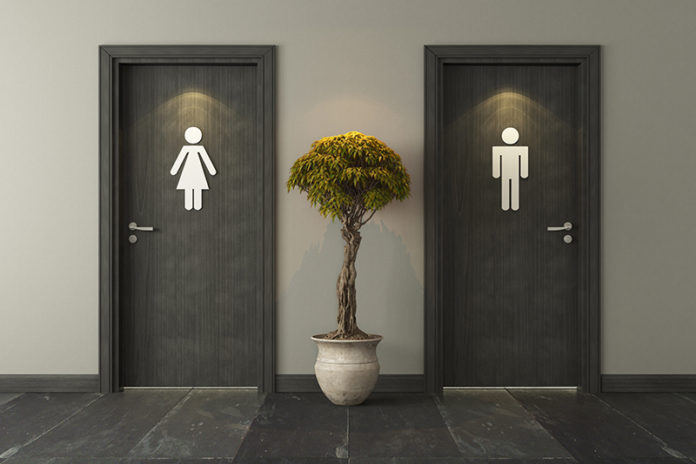Anyone walking around Chicago can find all sorts of things that make life enjoyable, from outdoor sculptures to lakefront beaches to stunning architecture. What is not so easy to find is something that is sometimes needed to make life bearable: a public restroom.
It seems unfair to neglect a function vital to all humans while catering to needs that are far less urgent. But as a Chicago Tribune investigation found, large areas of the city have as many public restrooms as they do polar bears.
Many of those that do exist are not open overnight. About the only ones available round-the-clock are in police stations, which not everyone perceives as inviting places.
The shortage is a particular problem for homeless people, Uber drivers, pregnant women and delivery people — and on occasion, for anyone with a bladder. Fortunately, it’s fully amenable to solutions. Like many shortages, this one is the product of government decisions that ignore the laws of economics.
Other cities have the same problem as Chicago. New York City, reports the Architectural League of New York, has 1,100 public restrooms — to accommodate 8.5 million residents as well as the 65 million tourists who come each year. San Francisco, which has only a few dozen for its 875,000 inhabitants, has something of a reputation for the waste commonly appearing on sidewalks.
Depriving people of access to such a basic facility has costs for all of us. No one wants to step in, or even over, the messes left by people who couldn’t find a toilet — or to round a corner and encounter someone taking a whiz.
Relieving yourself in public is a misdemeanor offense in Chicago, punishable with fines from $100 to $1,000 and up to 10 days in jail. In a city that averaged more than two murders a day last year, writing these tickets is not the optimal use of police. In a city with more public toilets, it would rarely happen.
But installing, monitoring and maintaining public toilets costs money, and city governments have many other tasks that take priority. The private sector, alas, is not accustomed to furnishing something for nothing.
There lies the source of the problem. Decades ago, America had lots of publicly accessible restrooms that paid their own way, by requiring users to insert a nickel or dime. In 1970, the Pacific Standard reports, there were 50,000 pay toilets. By 1980, almost all of them were gone.
They were not all blown down by tornadoes. They were not the unforeseen casualties of some other necessary development. They disappeared because they were outlawed. Which city was the first to ban pay toilets? Chicago, in 1973.
It may seem cruel to make people surrender money for something our bodies compel us to do several times a day. But we don’t expect farmers or supermarkets to provide us with food for free. If we did, we would soon be munching grass and tree bark.
Price controls invariably keep supply below demand, and mandating a maximum price of zero does that in spades. One thing worse than paying to use a restroom is having no restroom to use. Far better to spend a token sum to relieve yourself in an actual toilet than to pay $100 to do it in a dark alley, while looking over your shoulder for cops or muggers.
Anyone unable or unwilling to pay would still have the illegal option. Allowing pay toilets where public facilities are absent would not make anyone worse off.
Nor is charging a fee a violation of the Geneva Conventions. In many parts of Europe, pay toilets are still common, typically charging less than a dollar.
“Coin-operated toilets are the norm at highway rest areas, train stations, and even at some sights,” notes travel guru Rick Steves.
Americans have our own, well-disguised version. We’ve all had the experience of buying gas or coffee just to ensure unimpeded use of a restroom.
If pay toilets were allowed here, some capitalists would not be too proud to enter the fee-to-pee business. Some businesses that don’t offer facilities to customers might change their policies, even for noncustomers.
No one who has ever been desperate to find a place to go can doubt that ready access to a restroom is a valuable commodity. How about we stop treating it as though it’s not?






























